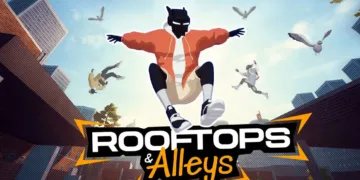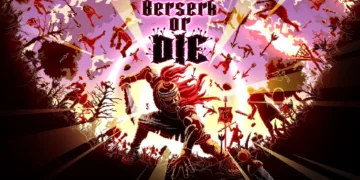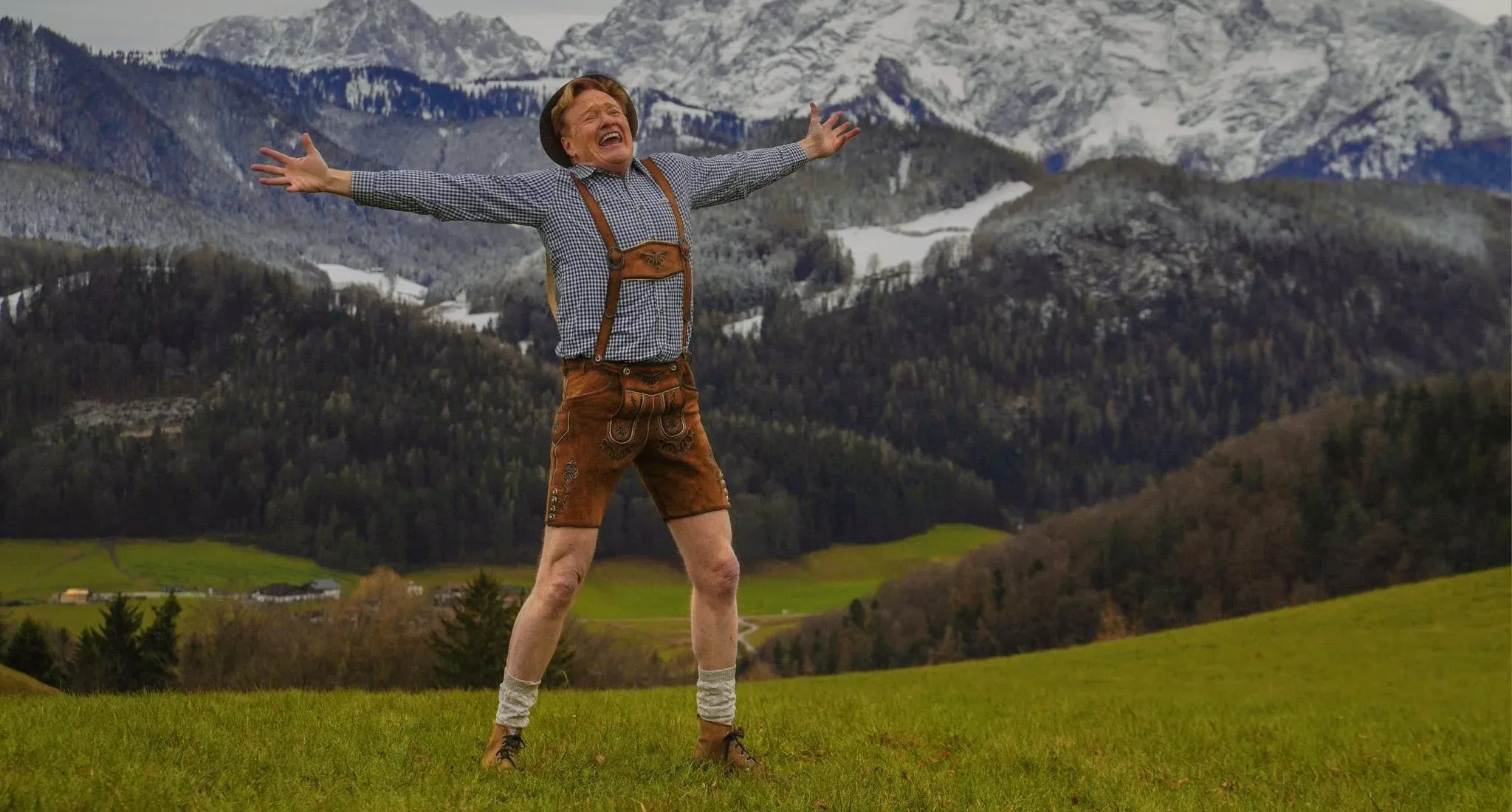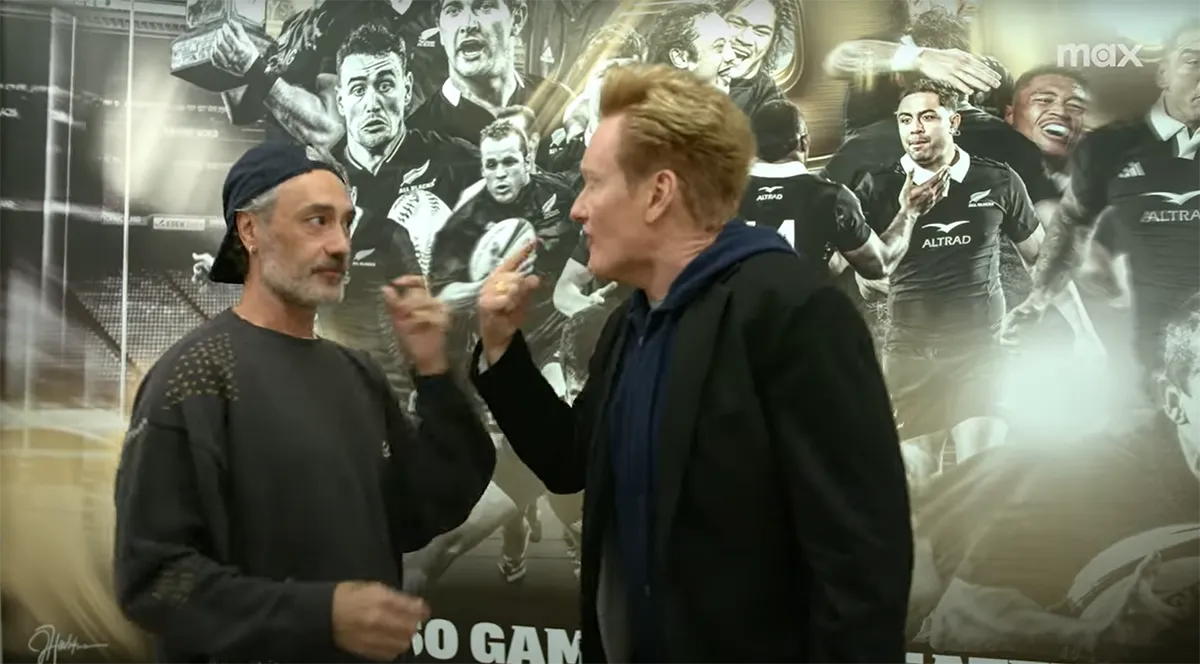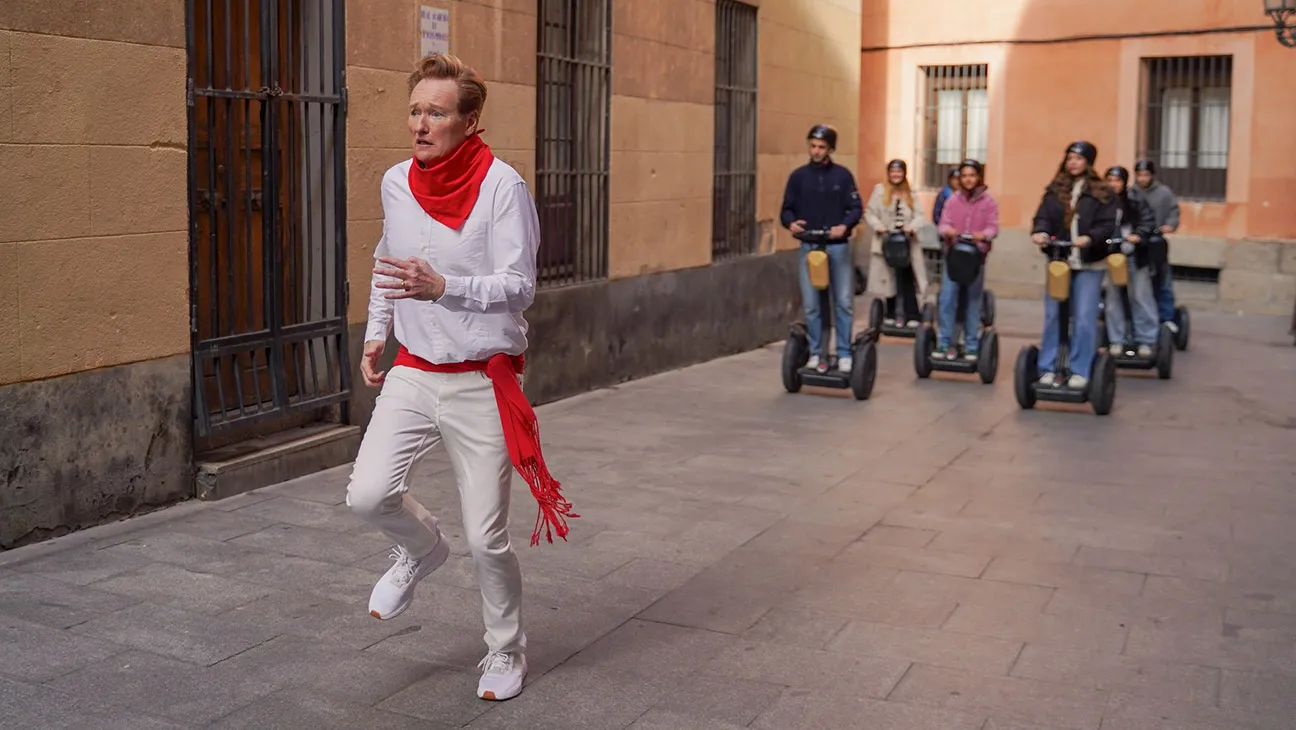Conan O’Brien Must Go Season 2 positions the veteran late-night host at the center of a three‑episode travelogue on Max. Across Spain, Austria and New Zealand, Conan picks up fans he first met on his podcast and throws himself into local customs with comic abandon. Each installment runs about forty minutes, a compact format that channels energy into playful stunts—imagine flamenco lessons gone awry, Freud impersonations in Viennese squares and haka rehearsals at Eden Park. Underpinning these antics is a clear aim: spark human connection through laughter.
This season pares down spectacle to spotlight moments of genuine contact. In Madrid, Conan teams with Javier Bardem for a boat ride through historic waterways. In Vienna, he overcommits to a Freud bit and even attempts choir harmonies alongside local singers. New Zealand’s chapter blends sheep‑paddock tomfoolery with a world‑record haka attempt alongside Taika Waititi and Maaka Pohatu, then shifts to heartfelt exchanges with an off‑grid fan living in a shipping container.
Conan’s willingness to look ridiculous invites candid reactions, yet his curiosity reveals deeper cultural threads. This run feels tighter yet richer in emotional texture. With every pratfall and spontaneous chat, the series underscores how humor can break barriers and reveal who we are beneath the punchlines.
Adaptive Absurdism: Conan’s Cultural Chameleon Act
Conan’s signature humor pairs erudite asides with slapstick—one moment he’s posturing as Freud, the next he’s face‑planting in olive groves. That high‑low contrast signals respect for local knowledge even as he gleefully lampoons it. By embracing pratfalls—kissing ancient trees or attempting flamenco kicks—he offers comic relief that disarms hierarchies, giving voice to everyday fans who find empowerment in his absurdity.
His readiness to become the punchline shifts power: locals lead the narrative, while he plays foil. In Spain, we watch him mimic a flamenco teacher’s moves so poorly that learners on both sides critique his form. That dynamic underlines cultural stewardship, reminding viewers that genuine representation arises when hosts defer to community expertise.
Impromptu turns propel each episode. When motorcycles swarm him at Pamplona’s bull‑run reenactment, he replies with a dry quip that morphs chaos into commentary. These off‑script moments showcase how streaming platforms now prize unvarnished authenticity over polished sets.
Jordan Schlansky’s presence amplifies Conan’s improvisation. As the producer‑turned‑foil, his deadpan corrections—like fixing Conan’s Spanish mid‑stunt—highlight shifting norms: travel content no longer hinges on a lone expert, but embraces collaborative exchange.
Within single scenes, Conan pivots from clown‑ish antic to empathetic listener. In New Zealand, a bungled haka attempt dissolves into respectful observation, revealing that humor can bridge cultural divides and spark dialogue on representation. That tonal shift mirrors a streaming trend toward hybrid formats that blend comedy with social insight.
Mapping Chaos to Culture: Destination Deep Dive
Spain’s installment unfolds amid Madrid’s grand plazas and world‑class museums, where Conan dances between respect and ridiculousness. Inside the Prado, he attempts a flamenco routine so off‑beat that local dancers pause their steps to critique him. Later, he visits an olive‑oil farm, improvising an air‑drum theme song that awakens both laughter and pride among the growers. That bit reverses expectations: a late‑night star drops pop‑culture riffs into agrarian life, inviting authentic rural reactions.
The standout comes in a fan meetup aboard a canal boat with Javier Bardem. Bardem’s calm rapport grounds Conan’s spontaneous quips, illustrating how unscripted chemistry now ranks higher than staged talk‑show segments. In a dubbing studio, Conan voices Vin Diesel’s Dominic Toretto, a meta sketch on global media’s local adaptations. Spain’s backdrop—where centuries of history collide with punk‑rock energy—becomes a testing ground for travel shows that prize genuine exchange over glossy tourism ads. Through these moments, the episode shows how comedy can bridge language and tradition, exposing cultural layers beneath the punchlines.
Vienna’s stately boulevards provide a stage for Conan’s Freud bit: outfitted in a waistcoat, he analyzes passersby into id, ego and superego beneath Baroque façades. That collision of psychoanalytic theory and street theatre underscores a streaming trend of mixing expert insight with absurd performance. Next, the Vienna Boys Choir invites Conan to harmonize; his off‑key attempts draw playful reproach from choir directors, revealing affection through gentle satire.
A lederhosen festival follows, complete with oompah brass bands. Conan’s flailing dance contrasts sharply with poised revelers, yet the scene transforms into a tribute: shared laughter emerges from mutual curiosity. Visually, his floppy hat against ornate architecture becomes a study in absurdism revealing communal warmth. Behind the scenes, production choices—like giving local guides screen time as co‑hosts—signal a move toward collaborative storytelling, granting agency to inhabitants rather than treating them as scenery. Austria’s chapter suggests that touring shows can honor cultural heritage by letting residents lead both humor and narrative.
At Eden Park, Conan joins Taika Waititi and Maaka Pohatu for a haka world‑record attempt. His lanky frame misaligns with precise movements, each misstep amplifying respect for Māori tradition. That sequence captures how modern streaming content blurs spectacle with sincerity: viewers laugh at stumbles yet sense genuine admiration.
In a Māori tattoo studio, Conan hesitates before accepting a small moko. The scene emphasizes consent and symbolism, with guides explaining each motif. Framing that exchange through dialogue rather than quick gags reflects an industry shift toward deeper cultural context over surface‑level exoticism.
Venturing into rural terrain, Conan meets a fan living off‑grid in a shipping container. Moments of minimalist living and bucket‑toilet mishaps play as comic relief against rolling sheep pastures. The decision to highlight non‑urban life challenges urban‑centric travel tropes and lifts underrepresented voices. Through brisk edits of playful antics and extended interviews, New Zealand’s segment suggests travel‑comedy can operate as micro‑documentary. Here, humor and cultural exchange merge to spark awareness of indigenous practices and sustainable lifestyles—proof that a host’s absurdity can shine light on social justice themes while keeping viewers entertained.
Framing Authenticity Through the Lens
Conan O’Brien Must Go deploys sweeping vistas of olive groves and sheep‑paddocked fields before cutting to tight close‑ups on Conan’s flailing limbs. That visual contrast grounds his pratfalls in real environments, reminding viewers that humor can emerge from place as much as from persona. Camera operators shift between crane shots that capture landscapes as living backdrops and handheld angles that catch off‑guard reactions, a technique now common in streaming docu‑comedy hybrids.
Editing stitches rapid‑fire jokes—like a tree‑kissing gag—into quieter beats that let fans’ personal stories breathe. Quick cuts underscore absurdity; deliberate pauses highlight cultural rituals. It feels less like a polished tourism piece and more like a vérité sketch with built‑in comic timing. Sound design furthers that effect: local guitar riffs swell under Conan’s banter, live audience gasps punctuate each misstep, and spoofed theme tunes riff on regional anthems to playful effect.
Transitions between set‑pieces arrive unannounced. One moment, guests guide Conan through a dubbing booth; the next, he’s mid‑flamenco flop. That spontaneity is possible only because producers surrender some control, letting unscripted moments dictate pacing. Behind the scenes, a lean camera crew moves with minimal intrusion, proving that authentic fan encounters demand flexibility over rigid shot lists. In doing so, the show models a new standard: travel television that privileges genuine cultural exchange over slick staging.
Where Absurdity Sparks Empathy
Conan’s obvious outsider status serves as an icebreaker, turning cultural distance into comedic opportunity. When he tumbles through flamenco steps or mispronounces Spanish phrases, locals laugh alongside him—and suddenly he’s not a tourist, but a willing apprentice. That fish‑out‑of‑water energy primes participants to teach him their customs.
Amid gags, Conan sometimes pauses to truly listen. In New Zealand, a fan describes fleeing a war‑torn homeland in search of hope. Conan’s quips fade into silence as he leans in, allowing the fan’s story to resonate. That shift from slapstick to sincere attention reveals the show’s social conscience: humor invites trust, and trust yields vulnerability.
Absurd sketches—like donning Freud’s costume in Vienna—aren’t mere stunts. They loosen formal barriers, prompting locals to share traditions they might otherwise guard. Whether miming haka moves or attempting olive‑press choreography, his goofiness makes strangers into collaborators rather than on‑screen extras.
Emotional currents run beneath each laugh. A ramshackle sheep pen becomes stage for genuine joy when children grin at Conan’s antics; a bucket‑toilet joke elicits shared amusement and mutual respect. The series resists glossy tourism shots; instead, it captures raw exchanges in kitchens, fields and studios. Those unscripted moments—filled with laughter and unexpected tenderness—remind viewers that comedy can forge true connection.
Collaborative Dynamics: Celebrities and Community Voices
Celebrities like Javier Bardem and Taika Waititi appear not as mere star power but as co‑conspirators in Conan’s absurdist experiments. Bardem’s relaxed rapport diffuses hierarchical distance, signaling streaming shows’ shift towards organic partnerships that respect both host and guest agency.
Waititi’s segment in New Zealand frames indigenous practices with playful regard, underscoring a growing trend of integrating local leaders into mainstream formats. Meanwhile, Jordan Schlansky’s recurring presence as self‑appointed cultural arbiter enacts ironic commentary on production hierarchies, his deadpan critiques revealing behind‑the‑scenes gatekeeping that modern audiences increasingly question.
Fan appearances—from veteran podcast listeners to off‑grid homesteaders and an airline pilot—anchor the series in lived experience. Their diverse backgrounds foreground migration narratives, sustainability discourse and blue‑collar expertise rarely highlighted on travel shows.
Collectively, these collaborators reinforce Conan’s oscillation between clownish lead and attentive listener, a dynamic suggesting future content will demand reciprocal storytelling over single‑author narratives.
Charting New Paths for Travel‑Comedy
Season 2 reconceived celebrity travel shows by trading polished itineraries for raw fan interactions and unfiltered humor. Conan’s willingness to embrace chaos over choreography signals a shift toward formats rooted in mutual discovery rather than promotional fluff. With three concise episodes tied to distinct fan relationships, the series offers a modular blueprint that streaming platforms can spin out to new regions—imagine future stops in West Africa or Latin America, where community‑led narratives might reshape genre expectations.
The show’s ripple effect on fellow comedians and producers is already visible. Rather than staging elaborate set‑pieces, creators may now prioritize lean crews and local voices, granting participants editorial agency instead of treating them as background extras. That trend aligns with social‑justice storytelling: spotlighting an off‑grid refugee’s minimalist lifestyle or a pilot’s untold migration tale demonstrates how travel‑comedy can double as short‑form activism.
Underlying this evolution is comedy’s diplomatic power: laughter bridges language gaps and cultural barriers. Conan’s chaotic bits—failed flamenco routines, sputtering haka attempts—always circle back to genuine exchange. As audiences crave authenticity over spectacle, the industry may embrace hybrid docu‑comedy series that foreground societal issues without sacrificing levity. Viewers will tune in as long as unpredictability and heartfelt connection coexist onscreen, suggesting that this marriage of absurdity and empathy could define the next wave of global storytelling.
The Review
Conan O’Brien Must Go Season 2
Conan O’Brien Must Go Season 2 delivers riotous chaos that opens pathways to genuine connection, trading polished travelogue tropes for spontaneous cultural exchange. Conan’s self‑deprecating stunts set the stage for heartfelt moments that highlight local voices and social nuance. Collaborative cameos and unscripted fan encounters transform each episode into a compact documentary of empathy and absurdist humor. This season proves travel‑comedy can inform as it entertains.
PROS
- Genuine fan encounters that foreground diverse voices
- Sharp contrast between Conan’s absurd bits and heartfelt moments
- Cinematic framing of local landscapes and cultural sites
- High‑profile cameos that feel collaborative rather than promotional
- Flexible pacing that allows unscripted spontaneity
CONS
- Three‑episode run may leave deeper themes underexplored
- Abrupt scene shifts can feel jarring at times
- A handful of sketches lean too heavily on celebrity presence
- Occasional humor overshadows nuanced cultural insights





































